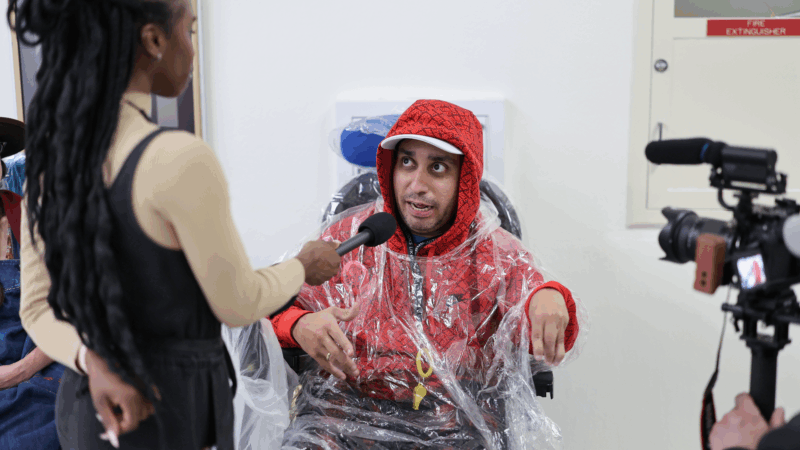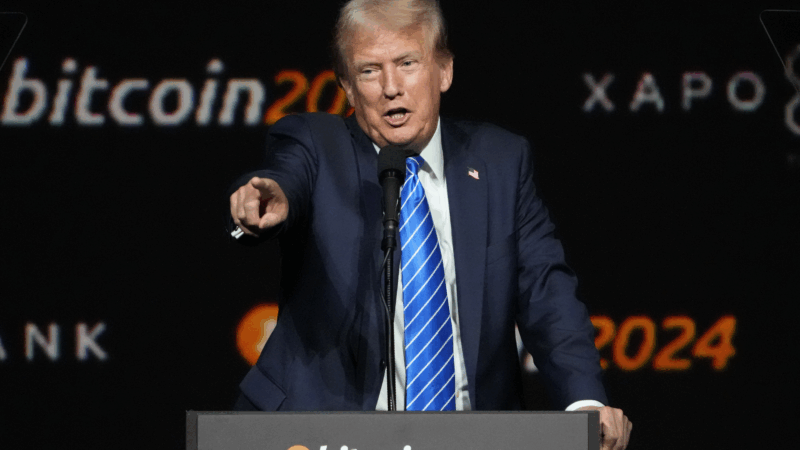Medicaid keeps getting more popular as Republicans aim to cut it by $800 billion
Medicaid has always been pretty popular, which is why the latest numbers on it even surprised pollster Ashley Kirzinger.
“We actually are seeing a pretty significant uptick in Medicaid popularity,” says Kirzinger, who is director of survey methodology for health research organization, KFF. According to a poll published Tuesday, 83% of the public have favorable views of Medicaid. Just a few months ago, in January, that figure was 77% of the public.
Support from 3 in 4 Republican voters
“The largest uptick we saw in favorability of the past couple of months was among Republicans,” Kirzinger adds. Three in four Republicans now say they view Medicaid favorably.
That popularity boost comes as many more people are hearing about Republican cuts to Medicaid in the news. It’s among the most difficult political issues for Republican lawmakers trying to navigate narrow majorities in both houses of Congress to pass their tax and budget bill. The legislation, officially named the “One Big Beautiful Bill Act”, passed the House, and the Senate is trying to pass its version before the July 4 recess.
That budget bill is much less popular than Medicaid, the KFF poll found. Overall, two in three Americans have unfavorable views of the bill. Those who support President Trump do like the bill, but they also like Medicaid, Kirzinger says.
Support for more Medicaid funding
Medicaid provides health coverage to 71 million low-income and disabled people across the country. (Since Medicaid goes by many different names, such as KanCare in Kansas and Apple Health in Washington State, pollsters ask their Medicaid questions using the name of the program in the home state of the interviewee, Kirzinger explains.) An additional 7 million low-income children are enrolled in the Children’s Health Insurance Program, known as CHIP.
Part of the popularity of Medicaid is its reach. “A large share of the public say that either they or a family member have ever received some type of coverage through Medicaid,” Kirzinger says. “Once people are thinking about Medicaid as a program that has benefited themselves or a family member, then it hits a little bit closer to home for them.”
In fact, “people want to see increased spending on Medicaid and they don’t want to see it cut,” she says. In March, KFF found only 17% of people were in favor of decreased federal funding for Medicaid, and 42% said it should actually be increased.
Medicaid is funded by a combination of state and federal tax dollars. The current budget bill being hammered out in the Senate cuts nearly $800 billion in federal spending on Medicaid to help pay for tax cuts and increased border spending.
Language matters
“Attitudes towards the bill are really subject to messaging,” Kirzinger says, which speaks to the speed at which the thousand-page bill has gone through the lawmaking process.
“If you tell people that it would decrease funding for local hospitals, unfavorability increases to nearly eight in ten. If you tell people it would increase the uninsured [population] by about 10 million people, unfavorability increases to three in four.”
Republican lawmakers have downplayed the projected financial impact to rural hospitals and the number of people who could become uninsured, aiming to frame the proposed changes as targeting those who don’t deserve coverage.
That’s how Rep. Brett Guthrie, R-Ky., who chairs the Energy and Commerce Committee, sold the proposal in an opinion piece for Fox News earlier this month.
“Every vulnerable American who needs Medicaid should be protected and have access to care,” he wrote. “That’s why House Republicans have thoughtfully curated a bill that realigns incentives in Medicaid for states to care for the most vulnerable over individuals who aren’t eligible for the program, including illegal immigrants.”

Democrats and health advocacy groups emphasize the projected impacts of the bill. “Voting for this bill is voting to kick seniors out of nursing homes; it is voting to shut down hospitals in rural areas; it is voting to take coverage away from kids with disabilities,” Senator Patty Murray, D-Wa., said in a press conference with health providers and Medicaid beneficiaries last week.
The KFF poll found that people who currently have Medicaid are worried about losing coverage. “A majority of them say it would be very difficult for them to see a health care provider or pay for any other form of health insurance coverage, and nearly two thirds say it would be difficult for them to afford their prescription medications that they rely on,” Kirzinger says.
“Most of them say it would have a major impact not only on their financial well-being and their overall quality of life, but also their mental and physical health,” she adds.
In this Icelandic drama, a couple quietly drifts apart
Icelandic director Hlynur Pálmason weaves scenes of quiet domestic life against the backdrop of an arresting landscape in his newest film.
After the Fall: How Olympic figure skaters soar after stumbling on the ice
Olympic figure skating is often seems to take athletes to the very edge of perfection, but even the greatest stumble and fall. How do they pull themselves together again on the biggest world stage? Toughness, poise and practice.
They’re cured of leprosy. Why do they still live in leprosy colonies?
Leprosy is one of the least contagious diseases around — and perhaps one of the most misunderstood. The colonies are relics of a not-too-distant past when those diagnosed with leprosy were exiled.
This season, ‘The Pitt’ is about what doesn’t happen in one day
The first season of The Pitt was about acute problems. The second is about chronic ones.
Lindsey Vonn is set to ski the Olympic downhill race with a torn ACL. How?
An ACL tear would keep almost any other athlete from competing -- but not Lindsey Vonn, the 41-year-old superstar skier who is determined to cap off an incredible comeback from retirement with one last shot at an Olympic medal.
Trump promised a crypto revolution. So why is bitcoin crashing?
Trump got elected promising to usher in a crypto revolution. More than a year later, bitcoin's price has come tumbling down. What happened?







